Bablicon – The Cat That Was A Dog/A Flat Inside A Fog
: Label: Pickled Egg Format: CD
 This is an album which contains a wealth of ideas, some of which I hope will be developed further in future work. Their instrumental combinations are inventive as are the range of collage and improvisational techniques which make up the CD. When I heard the first track I thought of Henry Cow meeting Monk, just something in the angular piano and its combination with the clarinet/sax conjured up that unlikely collaboration. So, an auspicious start and one that continues with the almost romantic piano/violin duet that opens “Travelling”. I picture the ‘travels’ in this case through far corners of Eastern Europe before it became ‘open’. The combination of piano, clarinet and sax conjures up capital cities in the early 20th century. Coffee houses with �igr� in wary transit. I’m also reminded of some recent work by John Zorn, which may not be surprising.
This is an album which contains a wealth of ideas, some of which I hope will be developed further in future work. Their instrumental combinations are inventive as are the range of collage and improvisational techniques which make up the CD. When I heard the first track I thought of Henry Cow meeting Monk, just something in the angular piano and its combination with the clarinet/sax conjured up that unlikely collaboration. So, an auspicious start and one that continues with the almost romantic piano/violin duet that opens “Travelling”. I picture the ‘travels’ in this case through far corners of Eastern Europe before it became ‘open’. The combination of piano, clarinet and sax conjures up capital cities in the early 20th century. Coffee houses with �igr� in wary transit. I’m also reminded of some recent work by John Zorn, which may not be surprising.
They create a more menacing version of this type of soundscape on “Animals”. Again the violin and clarinet are particularly evocative but they are joined by the ‘alien orchestra’ which provides a nightmarish backdrop of sound from another sphere. This becomes a feature of Bablicon’s work which offsets the melodic tendencies of some pieces. The groupy uses tape effects, voice samples and other random noises to broaden the palette from which they choose to compose/improvise. Again, I was reminded of parts of side two of Henry Cow’s ‘Unrest’ and wondered if Bablicon’s methods were the same. Track 5, “Saumur/Paris/Teatowels” is a good representation of this variety of sounds and even concludes with a brief, Ayler-ish anthem.
The first few tracks from the second section of the album, A Flat Inside A Fog, contain more of the noise and tape manipulation and feature such items as electric ghetto duck, geese swarm and that ‘alien orchestra’ again – this time just the clarinet section. The latter make a spacey echoing appearance on the brief “Smell of Ovoustic”. The Jazz influence that sometimes creeps in via the sax playing of The Diminisher is given a showcase on “Bahamut” which is driven along by the upright bass and drums. Again the main theme sounds vaguely East European, Romanian, or Hungarian maybe, then the sax kicks in an we’re treated to a few minutes of exploratory Jazz improvisation from the trio. As I mentioned there is no shortage of musical ideas. And while Romania is in mind there is a brief stopover at the Hotel Transylvania on “Aether” which offers a guided tour through the dust and candle wax as the ghost of a pianist tries to remember a tune first played a thousand years ago. The violin waltzing and scraping adds to the atmosphere of the place. If you’d like further intimidating atmospherics try “Ape Hall/Atlas’ Cousin” performed by The Bablicon Orchestra, a nightmare for massed strings and percussive tinklings.
Out of all these constructions it is possible to identify a ‘Bablicon’ sound, a mostly dark, electric and angular beast that likes to toy with certain types of melody. You definitely won’t be bored or disappointed.
-Paul Donnelly-
Backworld – Of Silver Sleep
Label: World Serpent Format: CD
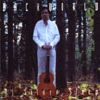 Joseph Budenholzer has a nice enough voice, can craft a tune in the singer-sonwriter tradition, but Of Silver Sleep has little to recommend it beyond some gentle, breathy lyrics about sadness, loss and things past. Delivered in something akin to a semi-Gothic take on Simon & Garfunkel, but with a flatter tone, each song engages for a while, then dissipates its interest in the similar rounds on acoustic guitar, with occasional guest strings, piano, etcetera. There’s no denying the gentle skill with which it’s played and often sung, but this one is strictly for fans of non-Apocalyptic Folk music.
Joseph Budenholzer has a nice enough voice, can craft a tune in the singer-sonwriter tradition, but Of Silver Sleep has little to recommend it beyond some gentle, breathy lyrics about sadness, loss and things past. Delivered in something akin to a semi-Gothic take on Simon & Garfunkel, but with a flatter tone, each song engages for a while, then dissipates its interest in the similar rounds on acoustic guitar, with occasional guest strings, piano, etcetera. There’s no denying the gentle skill with which it’s played and often sung, but this one is strictly for fans of non-Apocalyptic Folk music.
-John Palukha-
Bad Livers – Blood & Mood
Label: Sugar Hill Format: CD
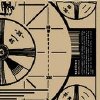 Such a beautiful band! Nobody combines Hillbilly subject matter and even instrumentation (banjos, slide guitar, steel pedal, upright bass, and God knows what else) with Industrial, Rock, and Punk aesthetic as well as these guys do. They mix awesome voice samples about chili cookoffs and local weather with electronic drum beats and loops on one song, while on another, sparse dual guitar instrumentals are paired with brilliant lyrics about small town life and lost love (“I’m burning things I find ’til you miss me” has got to be the greatest line I’ve heard in a song all year).
Such a beautiful band! Nobody combines Hillbilly subject matter and even instrumentation (banjos, slide guitar, steel pedal, upright bass, and God knows what else) with Industrial, Rock, and Punk aesthetic as well as these guys do. They mix awesome voice samples about chili cookoffs and local weather with electronic drum beats and loops on one song, while on another, sparse dual guitar instrumentals are paired with brilliant lyrics about small town life and lost love (“I’m burning things I find ’til you miss me” has got to be the greatest line I’ve heard in a song all year).
Bad Livers have consistently been among the best of the Psychohillbilly acts since their first record came out, and it’s always wonderful to hear that each successive record is just as good (if not better) than the one that came before. It goes without saying, too, that their live shows are absolutely amazing and able to bring out the violent shitkicker in just about anyone, including my normally passive, nondancing husband.
-Holly Day-
Balduin – Creative Cookery
Label: Crippled Dick Hot Wax Format: CD,limited 2×12″
 Balduin is someone who cites a range of influences from Sibelius, through Pink Floyd and on to Fila Brazilia. The title suggests you can expect a range of flavours. Something for every taste and palate, perhaps ? Though not a TV series and accompanying book. Whatever, I think there are even more influences at work here.
Balduin is someone who cites a range of influences from Sibelius, through Pink Floyd and on to Fila Brazilia. The title suggests you can expect a range of flavours. Something for every taste and palate, perhaps ? Though not a TV series and accompanying book. Whatever, I think there are even more influences at work here.
“Silent Steps”, for me, has Zappa‘s “Jazz From Hell” meeting National Health and being mixed somewhere in the late Nineties. Clipped keyboards are cut by sharp percussion or lithe bass. Something composed for Synclavier but less abrupt or cerebral. “Solo Be Good” has a riff lifted from some Jazz classic, I’ll bet, but I can’t spot it. It’s fruity and swings over and under the beats, while “Champagne” finds James Bond at Club Tropicana; music and martinis mixed in one cool, effervescent brew. “Weirdo” has a killer bass line, supple and driven under percussion and the trumpet’s intermittent Funk. But on the other hand, if you like Classic FM, I’d recommend “Sugar Fairy” with its glockenspiels and other interesting orchestrations. Sweet and lovely. “Lemon Curry” could have been promising but it wasn’t, leaving no taste at all behind. Still, enough of the cookery.
This is a very listenable concoction of styles, samples and beats that has enough diversity in the mix for those with a love of Jazz and Funk amongst other things. It’s artfully sampled, shredded and reconstructed. You might even catch the mercurial Lester Young leaping briefly into and out of “Minestrone”. But it doesn’t matter if you don’t. Tasty music for leaping or sitting down to.
-Paul Donnelly-
Banabila – Spherics
Label: Tone Casualties Format: CD
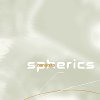 Blessed with a stern bass presence, Spherics rumbles awake in Dub style, clicks and whips up post-Industrial glitches while spinning a web of atmospherics around the whole caboodle with steadfast dedication to the details of drum sounds and low end pressure. Opening number “A Strong Sense of Urgency” is well named, chilled with clattery skunk breakbeat paranoia and a looming rhythm which propels the listener into unwitting edginess, and matter proceed in similar style from there.
Blessed with a stern bass presence, Spherics rumbles awake in Dub style, clicks and whips up post-Industrial glitches while spinning a web of atmospherics around the whole caboodle with steadfast dedication to the details of drum sounds and low end pressure. Opening number “A Strong Sense of Urgency” is well named, chilled with clattery skunk breakbeat paranoia and a looming rhythm which propels the listener into unwitting edginess, and matter proceed in similar style from there.
Despite the rhyhmic frigidity of some of Michel Banabila‘s programming and sequencing, there is an organic quality to the arrangements on Spherics. These can be found in the hooting owl and virtual passing car horn on “Tic Tac” or the rainfall electronics of “Worm-jazz”, where brushed cymbals contribute to an expectant mood built on slow Industrial Dub rhythms and what sounds like a steel pressing plant getting to slow grips with Reggae while a big band suffer a nervous breakdown in the nearest crawlspace. Less ominously, “Science Freak” wheezes and snickers complainingly from the depths of an iron lung shot headfirst into the diminishing depths of space inhabited only by needle dust and self-absorbed bass.
The incipient tensions in the album make for a subtly disturbing listen; and the offer of release witheld, while enhancing the edginess, can also be successfully dissipated into surrendered relaxation. The lengthy “Suma 4 – Blue Mix” washes in on a calming tabla-styled rhythm, gentle bass and simple melody, while Jorien Muste‘s soothing violin strokes meshed with crackles and Ambient heartbeat sussurus roll through an equally extended “Suma 3 – White Mix”. The final act of suspended animation thawed into slow pulsating rhythm comes with “Primitive Lab”, where vital signs are restored gently in preparation for removing the electrodes and drifting back to mundane reality.
-Linus Tossio-
Michael Banabila, Hennes Vennik And Bobby – Cards On The Table
Label: Staalplaat Format: 3″ CD on 5″ disc
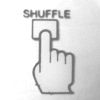 Each of the three contributors (DJs, architects, poets, musicians – not necessarily exclusively) to the Cards On The Table EP brough along sound sources to their studio sessions – the results were cut and pasted on a hard disc, and now presented as a nicely-packaged CD. A word on the presentation, which is pleasingly related to the title – the inner jewel case is cut from a table cloth, with a playing card enclosed, while, as with Staalplaat‘s Material series, the artist details, barcode etc. are printed on the case itself. There’s a handy icon showing a finger pressing a shuffle button too, so that and the instructions on the case point to the preferred method of listening.
Each of the three contributors (DJs, architects, poets, musicians – not necessarily exclusively) to the Cards On The Table EP brough along sound sources to their studio sessions – the results were cut and pasted on a hard disc, and now presented as a nicely-packaged CD. A word on the presentation, which is pleasingly related to the title – the inner jewel case is cut from a table cloth, with a playing card enclosed, while, as with Staalplaat‘s Material series, the artist details, barcode etc. are printed on the case itself. There’s a handy icon showing a finger pressing a shuffle button too, so that and the instructions on the case point to the preferred method of listening.
The results are pleasingly scattershot, as thuds of various sorts collide with avant scrape and digital glitchery; wafts of identifiable sound mix with the attenuated ooze of hard-disc twists, wheezing sound sources merge with what might be voices, and the overall effect is half-stimulating, half mushed-up wallpaper (or tablecloth) music. Chunky fragments of drum rhythms make for disjointed non-grooves, but not for long as the next switchback is as likely to result in some plundered noise or stuttering/gurgling environmental sounds overlaid with clicks and pops. Cards On The Table makes for a disorienting listen, proposing the sound of random acts of passing aetherial voices and music as a form of meta-Jazz perhaps.
-Antron S. Meister –
Devendra Banhart – Black Babies (UK)
Label: Young God Format: CD
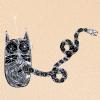 Any promo material that compares an artist to Syd Barrett or Nick Drake, however tenuously, spooks me. So I have to try extra hard to be objective and speak as I find. Anyway, here we have someone who is said to have certain attributes of both those guys and, I almost forgot, Tiny Tim as well. Well at least he doesn’t play ukelele.
Any promo material that compares an artist to Syd Barrett or Nick Drake, however tenuously, spooks me. So I have to try extra hard to be objective and speak as I find. Anyway, here we have someone who is said to have certain attributes of both those guys and, I almost forgot, Tiny Tim as well. Well at least he doesn’t play ukelele.
What he does is sing fairly ordinary songs in a voice that is fragile, intimate and pretty limited. There are a few quirky melodies and he is accompanied mainly by acoustic guitar as he warbles, sometimes hitting a freakish falsetto, a bit like early Marc Bolan. His lyrics though sound like something that the long dormant Barrett may have discarded. No, not even that, more like adolescent poetry written by someone who has heard a bit of Barrett. It sounds like it was recorded in a box, an unsteady box, and possibly in a bedroom.
Well, I tried to be objective but to be honest it just comes across as amateurish and derivative. However, reviewers at The Wire, Mojo and The Observer think highly of him. Someone’s got it wrong.
-Paul Donnelly-
Banned-X – Songs An’ Trax
Label: MultiColor Recordings Format: CD,LP
 DJ Gabriel Le Mar has decided to take a mish-mash of electronic styles – House, Techno, HipHop – and mix them up in Dub style with a heavy dose of Reggae and the odd bit of Soul – plus the ever-present Classical influence. Now all this is very well and good, but the results, despite the infusion of vocoders aplenty and a general air of competence, are pretty dull.
DJ Gabriel Le Mar has decided to take a mish-mash of electronic styles – House, Techno, HipHop – and mix them up in Dub style with a heavy dose of Reggae and the odd bit of Soul – plus the ever-present Classical influence. Now all this is very well and good, but the results, despite the infusion of vocoders aplenty and a general air of competence, are pretty dull.
Somehow “When Love Speak” manages to sound like Seal’s version of “Killer” for example, built on a rolling rhythm and some Ragga inflections, and “I Wonder” makes all the right electronic Dub noises too. But a song like “Jah Will Be There” does itself no favour with an excess of emotionalism; there is unfortunately little that’s really memorable and quite a bit which is verging on the banal on this album.
Yeah, melodies; sure grooves; absolutley the vocalists Jah Meek and Markie J. can do the melodic and conscious lyrical thing; co-producer George DIN and Le Mar can work the studio for that dancefloor-to-dinner party vibe; but “Songs An’ Trax” somehow lacks a real vital spark. It’s acceptably turned out, sometimes even throbbing through the Trance-Dub interface quite chunkily, but both Zion Train and Massive Attack have done the good parts of this sort of thing so much better already.
-John Palukha-
Barbed – Pocket Reminders/Rolf O.D.
Label: Elevator Bath Format: 7″
 Barbed‘s Alex Burrow and Alex McKecknie specialise in the mindfully silly rhythms, the banal made over into brain-bashing mashup though the plain old device of loops and layers of sound and noise. Plunderphonics you can dance to perhaps. This single has two stabs at dementia, the first being a frenetic swarm through pots and pan breakbeats, acid-rush analogue swoops and rambling vocals courtesy of sleeve star Dominic Blättler of a lysergic stream of consciousness cut-up variety. All the stops are pulled out, dropped and rewound – put yer hands in the air, ‘cos Barbed don’t seem to care if they mangle hyper-BPM Trance Techno into something deservedly warped and bad-trip noisy. Listen to the text to, it might change someone’s life. For better or worse? Who knows… let the forces of chaos decide.
Barbed‘s Alex Burrow and Alex McKecknie specialise in the mindfully silly rhythms, the banal made over into brain-bashing mashup though the plain old device of loops and layers of sound and noise. Plunderphonics you can dance to perhaps. This single has two stabs at dementia, the first being a frenetic swarm through pots and pan breakbeats, acid-rush analogue swoops and rambling vocals courtesy of sleeve star Dominic Blättler of a lysergic stream of consciousness cut-up variety. All the stops are pulled out, dropped and rewound – put yer hands in the air, ‘cos Barbed don’t seem to care if they mangle hyper-BPM Trance Techno into something deservedly warped and bad-trip noisy. Listen to the text to, it might change someone’s life. For better or worse? Who knows… let the forces of chaos decide.
Nagging repeated sample loops, thumping monotone bass lick and hi-hat characterise the catchy stupor-groove of “Rolf O.D.” – it’s simply straightahead and subject to squeakiness, with wryly amusing interruptions of clatter and klang. Great at any speed.
-Freq1C-
Bass Communion V Muslimgauze – Bass Communion V Muslimgauze EP
Label: Soleilmoon Format: CD
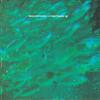 When Steven Wilson (also of No-Man) and Bryn Jones made their collaborative Bass Communion v Muslimgauze album shortly before the Jones’ death, there were two tracks uncompleted on DAT, the reworking of which by Wilson forms the basis of this EP – hecne the track titles “Six” and Seven”. The former rides an absolutely massive amount of rolling bass, thumping furiously at the speaker cones with an urgent air of something living trying to escape from the cabinets. The sound generated makes an impressive rumble, offset by airy synths and the occasional bleep or build up of digital squirtles and splutters and drops down into less furious low end moments; but never fear, the storm returns. Take this track and play out out through some really good speakers in a huge arena, please! Then get the Geiger counter out and measure the vibrations.
When Steven Wilson (also of No-Man) and Bryn Jones made their collaborative Bass Communion v Muslimgauze album shortly before the Jones’ death, there were two tracks uncompleted on DAT, the reworking of which by Wilson forms the basis of this EP – hecne the track titles “Six” and Seven”. The former rides an absolutely massive amount of rolling bass, thumping furiously at the speaker cones with an urgent air of something living trying to escape from the cabinets. The sound generated makes an impressive rumble, offset by airy synths and the occasional bleep or build up of digital squirtles and splutters and drops down into less furious low end moments; but never fear, the storm returns. Take this track and play out out through some really good speakers in a huge arena, please! Then get the Geiger counter out and measure the vibrations.
“Seven” is far less frenetic, and makes for more subdued listening by comparision. Based around a series of loops on the theme of samples snippets and glitches, the track builds an edgy atmosphere through its dreamlike use of large amounts of reversed sounds and judicious touches of reverb to the chimes and other ambiences. A short fade preceeds some stuttering bass before the distinctive Muslimgauze percussion patterns emerge to the accompaniment of arpeggiating synth phrases and some faraway dissonant organs and a literally final blast.
-Linus Tossio-
Bass Communion V Muslimgauze – Bass Communion V Muslimgauze EP (A Second Opinion)
The snap and quiver rips forth from re-examined rhythms and speakers alike. A woman’s voice. Did Bryn Jones savour that particularly particulate sound? It drifts through so many of these recordings, haunting the proceedings and is the lament of a woman (or otherformed wail) – the chief symbol of the Middle Eastern struggle?
The undulating beat occasionally crack crack cracks and reveals gentle tones shining through, fluttering above the thrum. Track two slowly wends an asp of finger-cymbals and melodies from its silken bag. It doesn’t last long and one wonders why it doesn’t last longer.
Problematic and emblematic.
-David Cotner-
Bastard Noise – Descent To Mimas
Label: Groundfault Format: CD
So for one’s listening pleasure, Groundfault CDs are classified in various Series. Series I (quiet) is Electroacoustic, Musique Concrete, Minimal, Ambient, field recordings, academic, tonal, and avante garde. This is a Series II (medium) recording – atmospheric, experimental, soundscapes, drones, improvisational, textural, cut-ups, Surreal, and abstract sound art. Descent to Mimas fills quite a few of those categories – since the methodology of these recordings is almost never divulged, yes, this could be some level of cutting-up and improvisation. One never knows.
Ironically, the descent begins with a slow rise in sound to an intensity near and dear to the speaker-eater level of the proceedings. One would think that a competition could be launched with these kinds of sounds, to see which albums would annihilate cheap speakers first. Winnah, winnah. The sounds are rather like multiple lightning strikes and plateau in that same electrical scree for some time. All right, coffee break. And we’re back. The sounds remind me of this air-raid siren I’m going to visit in a few hours on Sunset and the Pacific Coast Highway in Malibu. It’s been lying at the intersection for months, rotting and rusting as it’s now prostrate to the sun, having been hit by some heavy locomotive force in the past.
This is the kind of fuck music that should be played during BDSM sessions in those clubs you hear so much about but cannot successfully locate. There is a palpable sense of the overrriding physicality of making these kinds of sounds – knobs turned and switches pulled. Mad scientists? No, just angry, for once. “Lunar Nest Guard” is the rhythmic one – the rhythms coming from rashers of static, overlaid and overloaded. And when it all ends – with a bang of solid silence – it appears to be a very musical event indeed. The final piece, “Space Coffin”, is a fine and mellow piece of ethereal foghorned fuck music indeed.
-David Cotner-
Bedouin Ascent – Junk Force EP
Label: No Immortal Format: CDS
Well, my promotional copy is one hell of a nice CDR. The moire on the label feels like a “normal” CD does, and the entire package (including the colour-copied sleeve that smells of wet leaves) is exceptionally exemplary. Well, so too was it with the home-taping years – sometimes you got the candy and sometimes, you got the wrapper.
And the music? Very beat-oriented, very syncopated, bat bat bat bat, and all that that that that. Lots of percussion leading to much nodding of one’s head. A hectic cleaning of utensils in the kitchen while being hassled unduly by divebombing bees. Unfortunately, as they are shamefully as-yet-unheard here in the States, the loud level at which these recordings should be heard (i.e. in clubs, with clubs) may sadly go unattained for some time yet.
One suspects that if this is what the Bedouin use to ascend, their trajectories might be somewhat stifled by the rather less-than-hip Mullahs floating around the world today…
-David Cotner-
Beekeeper – Ostrich
Label: Southern Format: CD
American three-piece Beekeeper are a band destined to do great things. No, sod that! They already have done great things in producing their first album Ostrich. Drawing together their brother/sister, bass/guitar, twin harmony interaction of Karla and Matthew Schickele with the tight rhythmic underpin of Jan Kotik‘s drumming, all they need is about a dozen really good songs. and yes, this album is about a dozen really good songs. Ah well!
Stylistically they are not like Slint. I can’t think what they are like – a friend suggested that there was something of Talking Heads in the bass playing but that’s just plain misleading. I guess Slint are a good enough reference point as long as you don’t expect them to sound like them. The songs are hummable, the overdrive is warm to shrieking, the lyrics are quite intelligent and that cheap keyboard on “Men” is to die for. Hold on, did I use the expression “to die for”? (You did, unfortunately – Ed.) Oh, and it’s not post-Rock either so don’t start saying that. I guess it’d be post-Rock if Yo La Tengo were post-Rock. Well, Yo La Tengo are a bit post-Rockish…
Anyhow, it’s a brilliant dozen, bad headspace, sweet centred, drone-core, percussive, classic pop-songs with some fine turn-arounds, lyrical twists, harmonic games and ace chord changes. If you were here now I’d just put the sodding thing on instead of arsing about with this review…
– Iotar-
Beige – I Don’t Either
Label: Leaf Format: CD, Limited LP
 Funk, but not as usually made by your average K�n Electronica producer – it’s actually pretty grooveseome, and all electronic, but with a more minamal bent. The usual German sense of humour which seems to typify the musical output of this city comes through via the odd interjection of “Yeah. Yeah. That’s enough” during the fractured beats too. Ther’s the same rewound and rinsed out collision of Drum & Bass science with whacked-out cartoon noises, where the influences are there as elements but not in enough quantity to make this music fit any genre other than that ill-defined Cologne Scene one which doesn’t indicate very much at all. Then again, neither did the Canterbury one, and that stuck… so enough digression, what’s I Don’t Either like?
Funk, but not as usually made by your average K�n Electronica producer – it’s actually pretty grooveseome, and all electronic, but with a more minamal bent. The usual German sense of humour which seems to typify the musical output of this city comes through via the odd interjection of “Yeah. Yeah. That’s enough” during the fractured beats too. Ther’s the same rewound and rinsed out collision of Drum & Bass science with whacked-out cartoon noises, where the influences are there as elements but not in enough quantity to make this music fit any genre other than that ill-defined Cologne Scene one which doesn’t indicate very much at all. Then again, neither did the Canterbury one, and that stuck… so enough digression, what’s I Don’t Either like?
Bubbly, popping with squaky noises and tumbling breakbeats – but that goes with the territory. “Jamaika Fraktal” is titled like it’s going to be a Dub-infected groove – and it certainly skanks at times, but in slo-mo cut up hard-disc stylee, with some very peculir skiffy sounds instead of a melody as such. Mucking around with Reggae is another of those K�n elements, after all. As for “The Great Krautrock Swindle”, it’s not co much Can as Electro-shuffle, riding a clatter of hi-hats and cymbals in a moody stagger around the houses. With whistling; off tune. Strange.
I Don’t Either meanders around in off-kilter fashion, bunging the Funk up against all forms of electronic dance music possible – there are Housey bits, Technoid sounds, D&B tricks aplenty – and comes out the other end as an album that works in its own eccentric way. A track like “Freaky Fuckin’ Windows”, apart from its nifty title, piles on the computer game samples, then disappears in time for the next piece of downbeat switchback schmoozing, sequencer-style. It’s not one for those who expect linearity in the breakbeats in other words; a tangential album, one which skirts around the edges of consciousness before making itself known, and then only peripherally. All of which makes for wary, rather than easy, listing indeed, and the sort of funkiness which shimmies nervously at the edge of the dancefloor, smiling slightly to itself as it watches the stumbling attempts at grooving the music occasionally inspires.
-Freq1C-
Benge – Baud/Unary
Label: Expanding Format: 7″
 The two tracks on this single are variations on a Fender Rhodes theme, set in the case of “Baud” to a crunchy rhtymic beat and a ticking pulse. The melody is serenly mellow, drifting through the cyclical decay of the squashy main loop while the sound of electronica in Dub fizzles all around. “Unary” takes things on a more convoluted routemarch into cybernetic breakbeat realms, turning up the delay and FX to spit out an energtic rhythm which simultaneously retains the laid back groove. Both the tracks here promote the desire to lie down and put the needle back to the start to savour that electric piano once more, and to enjoy again the sounds of foursquare electronic percussion and the squittery blips of synthetic bubbling through into an electical sussurus. Mmmmmmmm.
The two tracks on this single are variations on a Fender Rhodes theme, set in the case of “Baud” to a crunchy rhtymic beat and a ticking pulse. The melody is serenly mellow, drifting through the cyclical decay of the squashy main loop while the sound of electronica in Dub fizzles all around. “Unary” takes things on a more convoluted routemarch into cybernetic breakbeat realms, turning up the delay and FX to spit out an energtic rhythm which simultaneously retains the laid back groove. Both the tracks here promote the desire to lie down and put the needle back to the start to savour that electric piano once more, and to enjoy again the sounds of foursquare electronic percussion and the squittery blips of synthetic bubbling through into an electical sussurus. Mmmmmmmm.
-Freq1C-
Bergheim 34 – It’s Not For You As It Is For Us
Label: Klang Elektronik Format: 2LP,CD
There are a couple of hidden extra tracks at the end of this album, and one of them makes the rest of the record fade into relative obscurity in comparison. Bergheim 34‘s cover of The Silver Apples‘ “Oscillations” is nothing short of brilliant, upping the tempo into a certain dancefloor groover thanks to a thumpingly good bass-heavy beat which suits the song entirely while remaining relatively faithful to the pioneering original. This track is so good that it unfortunately overshadows every other, which is a shame as most of the others are worthy of attention.
This aside, It’s Not For You As It Is For Us reveals further tendencies towards post-Modern reflectivity, as Anne Vortisch quotes “Don’t push me, ‘cos I’m close to the edge” at the beginning of the funked-up,laid-back, vaguely Stereolab-tasting Electro of “Random Access Memory”. With members spread across Germany and collaborating remotely, Bergheim 34 (the name was their former address in Heidelberg) produce some smoothly turned-out tracks which traipse on shimmering synth chords and twist in a very modern dancefloor manner, while also constructing complex, bouncy rhythms from rasperries, voice and tapped objects on “Us Key”. So far, so Kraftwerk – and there’s an equal amount of precision to their compositions which unwinds into the furthest extremities of contemporary Electro (for want of a better genre), segueing into the more urgent tumbled beats and surprised-sounding vocals of “Nasty Girl” with what can only be termed aplomb.
“Sucker” (Parts 1 and 2) ooze fractured Funk on splattery percussion (real and imagined) and rambling electrical chords, broken down into various stages of squittering decomposition: there are virtual strings and distended Disco at several stages removed to the same degree as the Soul in Vortische’s singing on “System” and the spluttery Garage whirl and hard-disc chickawacka euphoria of “Frogs On Grills” while the microsound dynamics of “Coding Stains” is overlaid with frantic layers of oscillating electronic rockout and a breakdown into beguiling drum machine orchestrations, floating chords and harmonized vocals. There’s also an Avant tangle of metallic klang and retro synthesizer fun sprinkled with hints of Dub for “Rababa” – demonstrating neatly how the quartet have certainly had fun mixing and splicing each other’s contributions.
The other bonus track, “Take My Soul”, sounds like it’s a cover too, swinging to a crisp minimal drum machine rhythm, the vocals heavily robotized and the bassline walking in quantized qualuude time. So get this for the superb version of “Oscillations” if nothing else, but the time taken to investigate the remaining album is more than worth it.
-Tango-Mango-
Aeron Bergman – The Tale Of The Unhappy American
Label: Tomlab Format: CD
Lucky Kitchen‘s very own Aeron Bergman (also known as Underwood on occasion) brings the soundtrack experience of the former working identity to condensed life on this immersive story of Skiffy ecologies and displaced urban dissatisfaction. Brief spoken passages introduce electronic interpretations and expansions on the subject at hand; as the tale progresses, it proceeds to work through a post-Playschool mix of hi-frequency minimal, processed environmental sounds and lo-fi vocalised sound effects into somewhat glitchier, distorted territories.
This juxtaposition of explicitly-stated text and aural expressions or accompaniment works to a degree, and the accumulating hum of electronics can be quite as enveloping as, say, a room full of fridges or computers with a similarly overloaded feel. There are some nice sounds and the odd fine passages of gurgling, cursive noise on The Tale Of The Ugly American, though the deeper meanings of the story beyond the hinted expression of distanced observation of human cuelty, violence and indifference are vaguely drawn.
The conclusions to be drawn are left open-ended enough to engender head-scratching in as much confusion as the narrator as to what has really happened. The dreamlike quality of the story is confirmed when he hops back into the cockpit of the jet-bike which has lead to the adventure, unsure of what has happened, and pops some music on the stero which gradually wavers out into static as he flies back home. Much like this record, really, which leaves the odd intriguing thought and some half-memorable images floating at the close.
-Linus Tossio-
Berliner Theorie – Live
Label: Staalplaat Format: CDS
 Sam Auinger (once of Swap) and Rupert Huber (of Tosca) have made a quietly simple EP stretch slowly in quiet shapes; neither ambient now foreground, Live occupies the terrain between with a delicate sensibility.
Sam Auinger (once of Swap) and Rupert Huber (of Tosca) have made a quietly simple EP stretch slowly in quiet shapes; neither ambient now foreground, Live occupies the terrain between with a delicate sensibility.
Three tracks with a background in radio art, internet audio sampling and a load of theory. “Miles” (recorded Linz, 1995) attenuates and extrudes a hypnotically-repeated vocal snippet unitl it is no longer reconizable. A linear twist is executed, the voice comes back in a two-stepped loop (and not in the Drum & Bass sense at all), and stops abruptly. “Intro” is second on the disc, originates in Berlin 2000, and holds its noise down low. Turning up the volume reveals hisses, environmental sounds, the edges of radio in non-action. Sussuruses rise occasionally like breathing; a melody floats from a disembodied violin, high pitches whistle through the aether, slow clanks appear briefly. This is the sound of radio held up to the ear and rushing like a seashell-shoreline, with similar illusory tedencies.
Final track “Brucewillis” (also from Berlin, in 1999) plays trills of the aetherial noises across each other, building up a vitrual acoustic wind. Chirrups like crickets are called to mind, as are the noises a damaged tweeter makes in a loudspeaker cabinet. Time to check the wiring?
-Linus Tossio-
Andreas Berthling – Mengerzelle & Grnberger
Label: Staalplaat Format: CDS
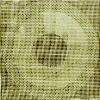 Another release in Staalplaat‘s cleverly-packaged Material series (this one comes with the CD jewel case filled with what looks like magnified cell-structures, but is probably melted expanded polystyrene or somesuch – looks damn’ good though, and a white grid motif), here from Stockholm’s Andreas Berthling who has his electronic finger on the pulse of many musical activities by all accounts.
Another release in Staalplaat‘s cleverly-packaged Material series (this one comes with the CD jewel case filled with what looks like magnified cell-structures, but is probably melted expanded polystyrene or somesuch – looks damn’ good though, and a white grid motif), here from Stockholm’s Andreas Berthling who has his electronic finger on the pulse of many musical activities by all accounts.
The title of the EP comes from its recording in two areas of Berlin, and these environments provided the source sounds for onward processing by Berthling’s chosen software (SuperCollider apparently). The results veer from the booming intensity of opener “Marchlewski”, which is enough to send the unwary diving for the volume control to save their speakers, via the chiming glitch-loops of “Graudenzer” into the higher-pitched relams of “Sltz Hayner”, which is really quite headache inducing thanks to its use of the upper frequencies. It doesn’t seem to actually go ultrasonic though, as playing the track to a handy dog resulted in no noticable effect.
“Harzer” bounces its blips and snips back and forth like a game of Pong left to rot to itself, with the electricity fizzing audibly in the backdrop. The final track sounds like either an insect stuck in an electromagnet, or a robot on a set of wobbly casters bouncing around an arena with a contact mic. From then on the EP accretes into ragged loops of torn-up electronics, and a satisfying conclusion is reached with a final beep. All good dirty fun with odd noises it is too.
-Linus Tossio-
Andreas Berthling – Tiny Little White Ones (Like Handfuls Of Sand)
Label: Mitek Format: CD
Glitching his way through the usual snippets of micro-sound, Andreas Bethling‘s latest disc finds him in shimmering slow mood at first, slowly building on the sound of a stuck electro-mechanical sounding noise into a weave of squeaks, blips and drop-out drips. Software rules Berthling’s sound world – noise is a raw material made for stripping down and diving into until the fabric breaks, then reassembling the results into Ambient music for dentists (complete with what resemble air and drill sounds on occasion) to get their patients into the correctly disturbed mindset in a (sometimes) physically relaxed body.
The horripilating electronics are not ones which make comfortable companions – the ambience engendered here is one of technological edginess, glimmering with byte-level interactions that don’t necessarily relate to the human experience. As yet. There are samples of guitars, harmonium and a vintage synthesizer supplied and occasionally identifiable from their dissected parts, but their assimilation into the slippery beatless meanders of digital processing is complete. Seamless would be the word in other circumstances, except here, the seams are part of the whole design. Pseudo-random events take over the duties of rhythm, texture and transition supply a shuffling non-groove of lateral relevance to tempo. It’s quite like imagining the sound of a computer breathing or data whistling through fibre-optic cabling: a remote, alien, and occasionally fascinating translation of machine code and resistor-level activity into audible form.
At moments like “About The Height Of A Man’s Chest”, there are intimations of an actual non-human presence cojured up; the slither of electronic tones, scratches and ticks rolls over a bass inhalation and exhalation which is nearly enough to get the fight-or-flight reaction kicking in. The Otherness of glitch music is probably where it works the best (though the jury remains out for the moment) – a close-up exploration of the point where processing takes the acoustic everyday and transubstantiates base sound into writhing textural abstraction. Berthling and his software-tweaking Powerbook colleagues are constantly exploring and transforming composition into something altogether on a different level of distillation- the question is, where will it end, if it hasn’t already?
-Freq1C-
Adam Beyer/C. Lekebusch –Untitled split single
Label:Drumcode/Hybrid Sound Architecture Format: 12″
Techno from Sweden. It’s that time of year again. More funky-chunky Techno from Mr Beyer – and C. Lekebusch who is unknown to me. BUT associating with the likes of Adam Beyer is pretty damm good credentials in my book, and Beyer`s on true minimal form. His first opus does nothing very well; it’s not so great on its own, but works a treat in a mix slipping in and out of other tunes. Cari Lekebusch lives up to my expectations. He is in a similar vien to Mr Beyer: groovesome yet abrasive. I had a little search for him on the net, and it seems he’s been looping and splicing stuff around since he was a kid, and invariably ended up it the Techno scene – not that he`d like me saying that.
What really interests Lekebusch is hybrid sounds, and this interest has produced some great Techno here. Its got the usual Techno beat, but don`t expect up-front uplifting synths. This isn`t that kind of Techno, and it`ll morph into just about anything you choose to mix it with. Adam Beyer goes stormingly with rougher mixes of Armand Van Helden`s stuff. This move to morphisms isn`t isolated; Jeff Mills formed Purpose Maker with this in mind: pitch the record up – it`s Techno. Pitch it down it`s House. Not every kind of House, of course. Beyer, Lekebusch and Purpose Maker will never mix with the squeeky clean clubby sounds: I don`t have any problems with this. They may not give much in the way of track titles on the record, but the do give Hybrid`s URL which I discovered leads to a lovely red screen with no obvious text/pics/links. It makes sense, I guess.
-Alaric Pether-
Klaus Beyer – Hauptmann Pfeffers Einsamer Herzenklub
Label: Staalplaat Format: 3″ CDS
 Somewhere between the deranged ranting of Wesley Willis and a Karaoke singer of the most dreadful kind, Klaus Beyer still manages to wring emotion and pathos from his German-language renditions of four Beatles songs. Apparently they were translated by Beyer in 1980 so his mother could understand the gords, and his live career as the world’s strangest Beatles impersonator started sometime after. His unique style involves a slightly-off key nasal singing voice, but the real joy comes at moments as when he sings “Das Gelbe Unterwasserboot”, mournfully taking the “Yellow Submarine” into the realms of surreal sadness. All this and “Gestern” (“Yesterday”) and a live singalong to “Wenn Ich 70 Bin” (date-adjusted for linguistic reasons from the original 64) which is greeted with whoops of appreciation from his audience. Something of a cult hero, Klaus Beyer is certainly a character, and a hero to some – not just for wearing his very dodgy Beatles mop-top wig in public either.
Somewhere between the deranged ranting of Wesley Willis and a Karaoke singer of the most dreadful kind, Klaus Beyer still manages to wring emotion and pathos from his German-language renditions of four Beatles songs. Apparently they were translated by Beyer in 1980 so his mother could understand the gords, and his live career as the world’s strangest Beatles impersonator started sometime after. His unique style involves a slightly-off key nasal singing voice, but the real joy comes at moments as when he sings “Das Gelbe Unterwasserboot”, mournfully taking the “Yellow Submarine” into the realms of surreal sadness. All this and “Gestern” (“Yesterday”) and a live singalong to “Wenn Ich 70 Bin” (date-adjusted for linguistic reasons from the original 64) which is greeted with whoops of appreciation from his audience. Something of a cult hero, Klaus Beyer is certainly a character, and a hero to some – not just for wearing his very dodgy Beatles mop-top wig in public either.
-Linus Tossio-
Bexar Bexar – 07.04.99
Label: Elevator Bath Format: 12″
This one-sided EP does its best to provide an impression of (presumably) one day in suburban Texas. Children play, natter and operate a variety of toys, bleepers, sirens. Car horns sound, a guitar is picked over, things make noise and everything loops over and under into a woven pastiche of a nice summery day out in July 1999. What could be wind noise on the nic, an attempt to disassamble someing obscure made of card or a weirdly-played basketball (among other feasible interpretations) makes some kind of strongest theme, eventiua;lly ripping into the void and making itself the subject of applause. What the fuck is going on?
That’s the pleasure and frustration of “07.04.99” – knowing the sounds through familiarity, but then hearing it all abstracted from readily provable context. It only seems to be a linear recording – so much is loops after all that the contant recurrence becomes the point of experience in and of itself. Nice one, Bexar Bexar, for creating your own reality out of the mundane; nice to vist, but would anyone want to stay there?
-Linus Tossio-
The Bionaut – Lubricate Your Living-Room
Label: Matador Format: CD
 You know, I want to like this record, but it’s just too tedious to listen to for long. The mostly electronic songs all start out just great, with cool voice samples and loops and repeated musical refrains etc., but then they just keep going on and on, which is the reason I’m not a big fan of most electronic music anymore. There comes a time in this, as well as many electronic DJ records, when it’s hard to tell whether or not this is music that’s still being “played” by the musician, or if it’s just something that was initially programmed in the first three seconds of the “song,” leaving 5-10 minutes free for the artist to wander off and fix themselves a pot of coffee or reset the VCR clock. All these pieces need is some shift in tempo to catch the listener unaware, or some new loop thrown into the mix, or just something to break up the flow enough to keep me (and I can’t be the only one out there) from just falling asleep.
You know, I want to like this record, but it’s just too tedious to listen to for long. The mostly electronic songs all start out just great, with cool voice samples and loops and repeated musical refrains etc., but then they just keep going on and on, which is the reason I’m not a big fan of most electronic music anymore. There comes a time in this, as well as many electronic DJ records, when it’s hard to tell whether or not this is music that’s still being “played” by the musician, or if it’s just something that was initially programmed in the first three seconds of the “song,” leaving 5-10 minutes free for the artist to wander off and fix themselves a pot of coffee or reset the VCR clock. All these pieces need is some shift in tempo to catch the listener unaware, or some new loop thrown into the mix, or just something to break up the flow enough to keep me (and I can’t be the only one out there) from just falling asleep.
-Holly Day-
Heimir Björgulfsson – Machine Natura (An Interpretation Inconsistent With The Actuality Of A Situation)
Label: Staalplaat Format: CDS
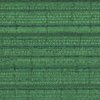 For this tenth element in the Material series, the chosen jewel-case liner is wallpaper; green, with a pattern not unlike snakeskin. More green on the inner tray and the disc itself packages up this EP from Stilluppsteypa member Björgulfsson and guest John Hudak, wherein what were once environmental sounds meet their digital friends. The sources are mixed and mashed into a long stream of altered consciousness, abstract tones joining sampled hisses and clicks in a build up and decay through throbbing beatless rhythms and non sequiter gritty spasms of processed atmospheres. Time is ticked by on strands of impure machine-adjusted noise, and the fine whines of sustained tones and the expectation of recognition.
For this tenth element in the Material series, the chosen jewel-case liner is wallpaper; green, with a pattern not unlike snakeskin. More green on the inner tray and the disc itself packages up this EP from Stilluppsteypa member Björgulfsson and guest John Hudak, wherein what were once environmental sounds meet their digital friends. The sources are mixed and mashed into a long stream of altered consciousness, abstract tones joining sampled hisses and clicks in a build up and decay through throbbing beatless rhythms and non sequiter gritty spasms of processed atmospheres. Time is ticked by on strands of impure machine-adjusted noise, and the fine whines of sustained tones and the expectation of recognition.
The results are eventually weightless, fragmentary, ultimately directionless; this is largely cerebral music to play games in the head, and none the worse for that. Why bother with the real world, it seems to ask, when you can chew it up, inwardly digest, and assimilate? Like the physical aspect of Material series themselves, the music is somewhere between art and atrefact for its own sake.
-Freq1C-
Black Faction – Internal Dissident Part One
Label: Soleilmoon Format: CD
 Internal Dissident Part 1 is a dub journey through Hell, the sound track to Dante‘s Divine Comedy. Black Faction guides us through Hell and then up into Purgatory along similar paths to those followed by Virgil and Dante in the fourteenth century. You don’t get many concept albums in the world of Electronica, mores the pity. They went out with the triple live album and ordering your singers to sing in a language you personally invented. This could well be one of the few.
Internal Dissident Part 1 is a dub journey through Hell, the sound track to Dante‘s Divine Comedy. Black Faction guides us through Hell and then up into Purgatory along similar paths to those followed by Virgil and Dante in the fourteenth century. You don’t get many concept albums in the world of Electronica, mores the pity. They went out with the triple live album and ordering your singers to sing in a language you personally invented. This could well be one of the few.
You might think a soundtrack for a journey through Hell would be pretty painful listening. You’d be wrong. Internal Dissident is an album of rich textures, melodies, and some very good Dub. Hell is pretty relaxed actually. That’s not to say the album isn’t dark: it’s is also full of chattering half heard voices and noises, like the souls passed on the journey downwards. Black Faction is the latest alias of Andrew Diey, a Manchester-based sound designer and musician. His previous release on Soleilmoon LP1 used his earlier name Foreign Terrain.
-ap-
Blindside – A Thought Crushed My Mind
Label: Solid State Format: CD
 In the early Nineties there was something of rennaisance in the field of Heavy Metal. Bands started interacting with other genres like HipHop, Hardcore/Grunge and Industrial. A perfect example of the kind of abominations this pestilent scourge would produce would be Limp Bizkit. This “New Metal” swept across the world (especially America) and totaly wiped out all remnants of leather, spandex and good song writing (was this a bad thing? – Ed.). Blindside are totally rooted in this territory; the influneces they cite never go back beyond 1990 and include all the leading figures of the genre, rubbish like Korn and Deftones. However, considering that these fellas have been bred on this kind of fodder, they have done really well for themselves.
In the early Nineties there was something of rennaisance in the field of Heavy Metal. Bands started interacting with other genres like HipHop, Hardcore/Grunge and Industrial. A perfect example of the kind of abominations this pestilent scourge would produce would be Limp Bizkit. This “New Metal” swept across the world (especially America) and totaly wiped out all remnants of leather, spandex and good song writing (was this a bad thing? – Ed.). Blindside are totally rooted in this territory; the influneces they cite never go back beyond 1990 and include all the leading figures of the genre, rubbish like Korn and Deftones. However, considering that these fellas have been bred on this kind of fodder, they have done really well for themselves.
They started kicking out the jams in a Stockholm suburb called Tumba, and released their self-titled debut album last year and have now followed it up with this offering. They have brought in a few folk musician friends to play strings and to widen the sound, which they do very well. One of the refreshing things about A Thought Crushed My Mind is the production which, unlike most New Metal which tends to be really overproduced with samples and loads of noises and treated guitars, has a straightforward garage sound and relies on song writing rather than on clever production. It is in the compositional sense that they really obliterate the competition in this perfidious musical genre that they have chosen to express themselves. The music alternates between soft passages and a ripping mixture of Hardcore and Metal as Christian Lindskog lets his vocal cords alternate between almost ethereal melodies and tortured howls. When he works with the strings and the band in the more reflective moments on this recording, it gets really quite touching, like on the epic track “Nothing But Skin”.
The lyrics also stand up quite well against all the self-obsessive whining of most other heavy bands around in the Nineties. I can discern a lot of feeling, empathy and spiritual geist in Lindskog’s lyrics, which is something rare these days. Blindside surely have the potential for better things, but as I said this is not really my cup of Metal. They need to start treading their own path and widen their influences beyond the Nineties, which has been a very bad decade for Heavy Metal, and learn from the ancient masters of annihilating riffage. It’s still early days though…
-Dag Luterek-
Blond – Ein Kurzer Tag
Label: Payola Format: 12″
Also known for playing in Couch, here Michael Heilrath is in solo Electro-cut-up mode, spinning out four tracks of late Twentieth Century machine recomposition in the now quite familiar style which marks out German Electronica. Lots of flangers and bleepy melodies abound, bouncing off each other like so much aural silly putty, making a gleeful bid for most happy of noises award 2000, without the mindlessness associated with so much Happy Hardcore (remember that? Is there still an audience for it? Or has it gone the way of cult music, or the best forgotten category?) Actually, on second thoughts, there’s much more of a feeling of borderline musical dementia being played with here, especially on the B-side, which really goes off on a limb to grind things around.
Some Blond tracks may be jolly and pleasant, but there’s a bit of bite to the breakbeats, the churning rhythms of “Zu Gast” being one example of this, and “Beim Guten” is much harsher on the speedy digital delay effects. Still, those vibraphone sounds could become grating from time to time – or could they actually achieve that state? As an EP, “Ein Kurzer Tag” scatters post-Funk synthesis cheerfully before its loping basslines, whips up a pot of obliqueness and makes inroads into polyrhythmic beat sciencewithout becoming Jazzy in the process. The best track is saved for last – “Geschmack” builds all the elements into a whirling cocktail of squirming alalogues which buzz in from all sides over a rather nifty tumbling drum pattern, and is the stand-out piece of a record which deserves closer attention than first listens might reveal.
-Freq1C-
Jürgen De Blonde – Hidden Rabbit
Label: Tomlab Format: CD
 I first pulled this out of the to-do pile because of the name. I know, don’t judge a book by its cover, but I like twee little titles about rabbits. What I got faced off with is a complete contradiction in terms. Is there any such thing as experimental Pop music? For this is definitely a Pop record, with the great lyric-sticking quality of pure Pop songs and loads of guitar fiddling, XfM/KROQ-style, not to mention the whole overblown ballady sort of singer/songwriter fluff that just screams consumerism. It reminded me immediately of Beck and James and Cher and countless other one-named MTV stars. Since I was well involved with a substantial load of dish washing at the time, I didn’t run fast enough to turn it off, and so it got me. These sounds started coming in, noise kind of sounds, the ones that just don’t fit but go so well. I found myself dripping suds and nearly dropping plates as I stretched round the corner to better hear these dissonant little perks.
I first pulled this out of the to-do pile because of the name. I know, don’t judge a book by its cover, but I like twee little titles about rabbits. What I got faced off with is a complete contradiction in terms. Is there any such thing as experimental Pop music? For this is definitely a Pop record, with the great lyric-sticking quality of pure Pop songs and loads of guitar fiddling, XfM/KROQ-style, not to mention the whole overblown ballady sort of singer/songwriter fluff that just screams consumerism. It reminded me immediately of Beck and James and Cher and countless other one-named MTV stars. Since I was well involved with a substantial load of dish washing at the time, I didn’t run fast enough to turn it off, and so it got me. These sounds started coming in, noise kind of sounds, the ones that just don’t fit but go so well. I found myself dripping suds and nearly dropping plates as I stretched round the corner to better hear these dissonant little perks.
It was true. Layered inside this consumer friendly batch of pop songs was a subtle but ingenious smattering of atmospheric synths and noodly space sounds. The arrangements were kind of off, in a good way, spacing and featuring the dibs and dabs of noise. One second there was the opening to most any Blur or Blink 182 song, then the o-so-avant Beatles on drugs sort of lyrics and sanwiched everywhere like phosperescent couches of nails were the spiky sharp noises that Pop songs aren’t supposed to have. I was reminded of The Eels, I am reminded of Space Hog and The Jesus And Mary Chain.I abandoned my chores (what chores? O, I’ll just have the usual) and the bad jokes, and I flipped around picking songs for their titles again. I cringed a lot at Jürgen De Blondes‘ bland voice on tracks like “Alien Abduction Eventually Leads to Misconceived James Deans” but I did get used to it. And what a great title.
I fast-forwarded with all hope to “Shady Brain (for Britney Spears)”, just knowing it would be against her (it is! yea!) and found not only that, but a perfect little line, “I want to be/Just like me/On that picture you took last night” which will be in my head indelibly for God knows how long. “Order Now!” sounds like happy Kraftwerk and Neu!. “Two Minutes of Mourning” actually made me cry a wee bit. I finally have to conclude that I really like this disc. It could be a money-maker in the right hands. It could be an enigma as well. Jrgen made it all by himself at home on minidiscs and it is a brilliant effort. I can’t believe how much I like this. Doing the rest of the dishes was almost enjoyable, and I let Hidden Rabbit play again and again.
-Lilly Novak-
Blowpipe – So Hot
Label: Harmsonic Format: CDS
Whether Spacemen 3‘s “So Hot” was really in need of covering is a little bit of a moot point, since it’s been done here (and less faithfully than Amp‘s contribution to the Rocketgirl compilation A Tribute to Spacemen 3 last year. Blowpipe take the song off in a relaxed TripHop direction, with cornets, washing synths and Miranda Sex Gardener Katherine Blake‘s langourous vocals interpreting the lyrics as a somewhat more dreamy, blissed-out manner than the original implied with its drug-swamped delivery by Jason Pierce.
“Mission” seems to derive more than is quite necessary from Mission Impossible than is probably necessary, flutes and all. It’s all so very Sixties as Nineties, and entirely predicatable by now – as is the remixed, er “Impossible Mix,” which at least benefits from some Funkier beats and scratches and trombone runs, but doesn’t really do much more than make for an merely acceptable groove.
-John Palukha-
Blue Foundation – 33
Label: April Format: CD
 Recordings like these are a truly and thoroughly modern phe-nom. They’re played by wily college radio stations which can somehow justify becoming a .org. Their titles are breathlessly pronounced by breathy aficionados of this sort of sound. Bachelors generally hoard these types of things, subsequently, because they are a very contemporary and “go-to” form of fuck music.
Recordings like these are a truly and thoroughly modern phe-nom. They’re played by wily college radio stations which can somehow justify becoming a .org. Their titles are breathlessly pronounced by breathy aficionados of this sort of sound. Bachelors generally hoard these types of things, subsequently, because they are a very contemporary and “go-to” form of fuck music.
That female voice – those lips, that voice, those sighs. A tinge of Jazz without recrimination. The band is a sturdy, clever, with-it variety of individuals – cosmopolitan, but that does not include your street in the big city. It is, however, fitting driving music for times of deep thought and domestic escapes…
-David Cotner-
Die Blutleuchte – Rus
Label: Säkho Format: CD
 Assembled by composer Anatoli Alexandrovich and produced by one Woyzek from Russian marching songs, political speeches, moaning voices, tape loops and sundry electronics, Rus flickers with dark disquiet, from the opening multi-tracked vocal snippets. The sound of burning, conflict and the clash of steel and cries of pain offset with melancholic synthesizer chords mingle with slow-moving passages of texture to the discordantly shrill pipes, fumbling balalaika and melancholy orchestrations faintly reminiscent of the Panic phase of tape-looped Current 93 and/or Boyd Rice. Rus is the oundtrack to a starkly-drawn succession of vignettes from Russian history, part sound poetry, part disturbingly chilly panorama of echoing noisescapes.
Assembled by composer Anatoli Alexandrovich and produced by one Woyzek from Russian marching songs, political speeches, moaning voices, tape loops and sundry electronics, Rus flickers with dark disquiet, from the opening multi-tracked vocal snippets. The sound of burning, conflict and the clash of steel and cries of pain offset with melancholic synthesizer chords mingle with slow-moving passages of texture to the discordantly shrill pipes, fumbling balalaika and melancholy orchestrations faintly reminiscent of the Panic phase of tape-looped Current 93 and/or Boyd Rice. Rus is the oundtrack to a starkly-drawn succession of vignettes from Russian history, part sound poetry, part disturbingly chilly panorama of echoing noisescapes.
Theatrical and fond of the use of dramatically bIg chords to punctuate the echoing voices, layered drones and looped Forties-sounding musical and spoken samples, Rus is an occasionally powerful, frequently puzzling and often disturbing listen which reaches some kind of apex in the icy wastes of “Sibir”‘s time-halting keyboard drone and pizzicato flow, and the bright synth shimmers and trundling arpeggiations combined with bent-string guitar distensions of the wobbly “Sputnik”. The chirpily rambling acoustic guitar melody of “Glasnost” is soon disrupted by crashing rubble, those echoing voices and a reedy pipe before frittering away as things fall apart all around, while the chanted rendition of what sounds like a handclap version of “We Will Rock You” which underpins “Spetsnaz” is cut through with coils of scratchy noise and electronic chirruping.
Fragments of stirring patriotism, rattling firearms, bass pulsations, dense walls of rumbling noise and murky shouts, distant gunfire, plus dissonant off-key Folky strumarounds and phoned-in epigrams float from mysterious point to inconclusive effect, but soon build their own uniquely strange sound world out of evocative elements. Lo-fi to the point of wondering if it was composed on mono reel-to-reel tapes, the construction of this record is so fuzzily drawn as to produce as much bafflement as enlightenment, especially no doubt to non-Russian speakers, though the shuddering spasms of “Kursk” are all too obviously evocative of the loss of the mammoth nuclear submarine off the coast of Norway. As the Red Army Ensemble crackle out with a traditional favourite to the soundbite babel in the epilogue, the full cultural nuances of Rus may not be entirely apparent, but through a process of osmosis at least some kind of approach to undertstanding is established.
-Antron S. Meister-
Bomb 20 – Flip Burgers or Die!!!!!!
Label: DHR Format: 12″
The title doesn’t do this justice really; to me it conjures up thumping bee-in-matchbox Gabba . . . but oh no no, this record is more than that. If the label suggests Alec Empire to you – listen to that suggestion. It caught my eye in Plastic Surgery (is this a plug…? In which case, it’s a record shop in Maidstone. – Ed), I placed it on the turntable, lowered the arm, tried to hear what was going on above the thumping Techno the guys behind the till were playing. Hard task: Bomb20 sounded like unabating white noise (though that’s not necessarily bad, is it?) What really impressed me was when I got back home and placed it on me trusty decks – it still sounded like white noise without any background din. What we have here is five garbled distorted tracks with no discernible beat – the hardcore to prolapse for – oh yes, the bass distortion is brutal. And what part of the globe is responsible for this? You guessed it, it’s those evil Germans again – straight from Berlin.
– Alaric Pether –
Boris The Sprinkler – …Gay!
Label: Go-kart Format: CD
 Fans of daytime TV may remember the inspirational episode of Jenny Jones when “Celebrity Crushes” united Boris the Sprinkler‘s Rev. Norb with a doting, underage fan who inadvertently introduced the Green Bay, Wisconsin, resident to the world of network TV for the first time. Rumors flew that Norb would have his own talk show soon after the episode aired, but alas – never happened. Luckily, he’s apparently content to continue to front the goofy, geeky, bouncy, strangely cool Punk Rock band Boris the Sprinkler, touching on everything from subjects close to his heart (shaving, dogs, and Green Bay) to more universally-important subjects like Taco Bell, Rock’n’Roll, and trains on this new record. Cartoonist Stan Lee was very impressed to hear out these guys dress as his X-men on stage sometimes, apparently completely unaware of how much influence comic books have had on Punk Rock over the years.
Fans of daytime TV may remember the inspirational episode of Jenny Jones when “Celebrity Crushes” united Boris the Sprinkler‘s Rev. Norb with a doting, underage fan who inadvertently introduced the Green Bay, Wisconsin, resident to the world of network TV for the first time. Rumors flew that Norb would have his own talk show soon after the episode aired, but alas – never happened. Luckily, he’s apparently content to continue to front the goofy, geeky, bouncy, strangely cool Punk Rock band Boris the Sprinkler, touching on everything from subjects close to his heart (shaving, dogs, and Green Bay) to more universally-important subjects like Taco Bell, Rock’n’Roll, and trains on this new record. Cartoonist Stan Lee was very impressed to hear out these guys dress as his X-men on stage sometimes, apparently completely unaware of how much influence comic books have had on Punk Rock over the years.
-Holly Day-
Pierre Bouchet – Sale Timbale
Label: Suicide Commercial Format: CD
 A Commercial Suicide Edition.
A Commercial Suicide Edition.
The sleeve is a faceted, complex jumble of sides and focus, but the CD comes in a sealed pouch. A cookie in cellophane, selling pain – but I won’t open it. I refuse. Right now – not yet. Several different languages cross the oft-folded cardboard, urging me to break open the CD – to free it, and play it.
But is that necessarily the point. It is unclear. An art object is what it is – but who am I to object? Right now? But but but. It goes away.
It’s a lovely item, really. A lovely thing. Spectacular.
-David Cotner-
Nick Bougas – presents Celebrities At Their Worst
Label: Mad Deadly Worldwide Communist Gangster Computer God Format: 2CD
“2 1/2 hours of flubbed lines, cussing and out-take hilarity.”
And so it goes. John Wayne (sounding impossibly earnest in a drunken state), Jack Palance (typically intense), Zsa Zsa Gabor, Colonel Harland Sanders, Orson Welles, Mickey Rooney, William Shatner (prima, secondary and tertiary donna), Louis Nye, Carol Burnett, Tim Conway, Elizabeth Taylor, Dean Martin/Jerry Lewis, Peter Sellers (with Spike Milligan, deconstructing in excelsis), Jonathan Winters, Richard Pryor, Marlon Brando, Elvis Presley, Lionel Barrymore, Don Messick and June Foray (showing that ultimately the greatest vocalists are impressionists), Tom Brokaw, Mike Tyson, and so on, and so on. That’s disc one. There’s another one.
Second disc features the control of Bing Crosby, the dissolution of Billie Holiday, the blowtorch passion of Buddy Rich, undercurrents of race relations with Sammy Davis Jr. and Freddie Hubbard, and the imperial majestic fear that was the Beach Boys rehearsals. Various references have shown up subsequently in the second Austin Powers film, Mystery Men, Late Night With David Letterman, and in something by Killdozer. Will sales sufficiently fuel more Throbbing Gristle CDs? How much more mileage will the Howard Stern show get from these pearlescent pieces of plastic? One never knows…yet, this double CD set is nearly single-handedly propelling LAFMS and Aleister Crowley reissues, jazz from the former Soviet bloc, volumes of Smegma material, the history of German Shepherds – and, of course, the aprocryphal more…
-David Cotner-
Bourbonese Qualk – On Uncertainty
Label: Korm Plastics Format: CD
 Veterans of experimental music make a homecoming of the here and now. Bourbonese Qualk, whose last release was in 1993, are back sounding new and fresh and completely present tense. It seems logical really, when one considers the futuristic-ness of experimental music, so that what BQ started in the 1980s would transfer into timeless sounds and current application.
Veterans of experimental music make a homecoming of the here and now. Bourbonese Qualk, whose last release was in 1993, are back sounding new and fresh and completely present tense. It seems logical really, when one considers the futuristic-ness of experimental music, so that what BQ started in the 1980s would transfer into timeless sounds and current application.
On Uncertainty plays like a collage, with each track disconnected from the others, but making a whole picture. For some reason, it puts me in mind of the old sci-fi animation Fantastic Planet. Track to track there is a depiction of differing moods and sentiments, with very little literalism and loads of ideas set in spiral for the individual listener to interpret. The disconnections do break up any chance of fluidity for the overall sound, but also seem necessary to leave a lot of room for the individual to create a cohesion in their own mind.
Basically this is an electronic Ambient record. There are plenty of organic sounds as well, though, so as not to sound too computer generated. The ambience gives way often to a very groovy Funk flow with a lovely bit of rythym guitar which further alienates this music from being classed as just one kind of thing. There are vocals lent in by Isa Suarez, but they are so minimal as to be easily missed. There are many moments of peaceful orchestrastions, something dreamlike about all that spacey ebb and flow, and more than a few very noisy parts that just don’t go with the pretty parts, but then again they do. One gets the impression that Bourbonese Qualk are a set of muscicians and programmers who have skill running out their ears, have been trapped on a deserted island for the last seven years or so, and have suddenly found themselves back in the world of the programmable, and the playable. Let’s just hope they don’t do another disappearing act too soon.
-Lilly Novak-
Bovine Life – Social Electrics
Label: BiP-HoP Format: CD
 BiP-Hop continues in its mission to unleash adventurous and creative Electronica on the world. Bovine Life is another fine example. Social Electrics is a great mix of eclecticism, collaborations, glitch-driven rhythms, electronic melodies, nicely awkward drum and bass, and sonic collages (the tracks in the “Ether Works” series with ? and “O.J. Simpson” come to mind.)
BiP-Hop continues in its mission to unleash adventurous and creative Electronica on the world. Bovine Life is another fine example. Social Electrics is a great mix of eclecticism, collaborations, glitch-driven rhythms, electronic melodies, nicely awkward drum and bass, and sonic collages (the tracks in the “Ether Works” series with ? and “O.J. Simpson” come to mind.)
This album also demonstrates what MP3 was put on this earth for: Internet collaboration. Chris Dooks, a.k.a. Bovine Life, was known for his film making before becoming ill in 1999. His interests in electronic music grew … and grew some … from a hobby into the album you have before you … or at least should. Via MP3 he has collaborated with Köhn, Matt Elliot from Third Eye Foundation, the labels Alku, Mego and Plug Research, along with people from Puerto Rico, Sweden, and California. The collaborative project is by no means over … take a look at the Bovine Life website. The kit of Bovine Life samples are up there along with the invitation to make remixes. This is such a damn great idea, how can I help but love it? Social Electrics and Bovine Life are able to make even the hardest hearted cynical web designer look at the Internet with enthusiasm again. What else needs to be said?
-ap-
Jeremy Boyle – Songs From The Guitar Solos
Label: Southern Format: CD
 Sometime member of Joan Of Arc (he gets to be described as their “handyman” whatever that means) Jeremy Boyle has taken time out to address the guitar solos of six Seventies mammoth-rockers, using each’s caterwaulings and neck-choking detritus as the basis for some Main-style microacoustic explorations. Taking bits and bobs, notes and feedback and stretching, draining and effecting them at sampled bit-level, Boyle makes the in-yer-face Ambient, the posturing contemplative and the linear drifting.
Sometime member of Joan Of Arc (he gets to be described as their “handyman” whatever that means) Jeremy Boyle has taken time out to address the guitar solos of six Seventies mammoth-rockers, using each’s caterwaulings and neck-choking detritus as the basis for some Main-style microacoustic explorations. Taking bits and bobs, notes and feedback and stretching, draining and effecting them at sampled bit-level, Boyle makes the in-yer-face Ambient, the posturing contemplative and the linear drifting.
The tracks are drawn from one group or artists’ solo(s), featuring (in order) KISS, Van Halen, Black Sabbath, AC/DC, Led Zeppelin and Jimi Hendrix. What emerges is a sinous, wavering hum of shimmering waves, hollowly-reverbed plucks, oscillating strings – and hardly a melody or arpeggio to be perceived, let alone identified. If the variety show act who can read the grooves of records has the ability to decode the ones and zeroes of a CD, he’d have to possess quite preternatural abilities to extract any facet of the likes of Jimmy Page or Geezer Butler‘s fretboard explorations from the stuttering glitches and warbling flow of micro-samples found encoded in the disc of Songs From the Guitar Solos.
Naturally, this record could have easily been constructed from pretty much any guitar sound sources – the fact that it samples from where it does shows that either Boyle has his eye on those Rock fans with abstracted musical tastes (unlikely) or has something more symbolic in mind. Regardless of deconstructing the paradigms of centre-stage electric heroics, which the tracks undoubtedly aim for and achieve, Songs… works best in its own right as a diffuse construct of half-engaging, half-invisible texture and the possibilities of cannibalised sound.
-Antron S. Meister-
Brainticket – Alchemic Universe
Label: Hologram (North America)/Fnfundvierzig (Europe) Format: CD
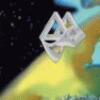 O that wacky Joel Vandroogenbroeck! I am on about my eighth listen to Alchemic Universe and what keeps happening is that I forget it might not mean to be so serious. What a bunch of flexing of the ole keyboards! This is Prophet 600tastick! ooo, the DX-7, the Korgs, the Junos even! An Eighties sort of extravaganza of synthesizer music gone mad. Did someone already coin “space oddity” as a phrase? O yes, I think I have heard it somewhere. Ok, so odd space music and new romantic style arrangements, and Laurie Anderson style spoken words, hesitant and halting with rythyms not unlike a washing machine gone off balance during the spin cycle. Alchemic Universe must have been a real kick to make.
O that wacky Joel Vandroogenbroeck! I am on about my eighth listen to Alchemic Universe and what keeps happening is that I forget it might not mean to be so serious. What a bunch of flexing of the ole keyboards! This is Prophet 600tastick! ooo, the DX-7, the Korgs, the Junos even! An Eighties sort of extravaganza of synthesizer music gone mad. Did someone already coin “space oddity” as a phrase? O yes, I think I have heard it somewhere. Ok, so odd space music and new romantic style arrangements, and Laurie Anderson style spoken words, hesitant and halting with rythyms not unlike a washing machine gone off balance during the spin cycle. Alchemic Universe must have been a real kick to make.
I don’t know really if Mr. V and company are taking the piss out of electronics, or if it is just my own lacklustre sense of humour. Whatever the case, this is a funny record, and it keeps being funny right when I realize it has lulled me off into a dreamy atmospheric sort of state, and I am thinking, “hmmm, this is quite pretty…”. I keep having MTV flashbacks and such and then it all goes wonky again reminding me that it can’t be all that serious. Brainticket. Best name ever. Just when I realize I am dancing while doing the dishes, some spring mount silliness jilts me back to the here and now and I have to laugh for thinking this could be played at some club, somewhere. Well, it could!
And the irony? One of my favourite songs in the world is one called “Brainticket Cover” by my friend (and possibly yours), Freq’s own David Cotner under the name |||. This fabulous collection of original material, composed by Joel Vandroogenbroeck, written by Lance Bunda and spoken to by Carole Muriel sounds strangely like Eighties cover songs. Alchemic Universe doesn’t contain any Synth-Pop at all though, and doesn’t exclusively have that sound at all, but it still somehow sounds like it was constructed the way electronic music was back then. It would probably take a truckload (at a guess) of synth stands to set up a performance of Alchemic Universe, which seems very unacceptable in the current trend for making music on machines that fit easily into your pocket. I for one like that it would take so many cables and wood-veneered boxes with plastic knobs on to play this music. And if the joke’s on me, and Mr.Vandroogenbroeck does have a little machine which does everything in his pocket, then all the better! O thank you Brainticket! You have just put the (sic) back in music!
-Lilly Novak-
Brainticket – Alchemic Universe (A Second Opinion)
Is the father so much like the son or daughter he has sired? Full circles are interesting things. In previous days, they moved around each other but did not mesh. Now, the attraction is somewhat stronger, but still, opposite worlds rarely collide. And compounding all of this is the fact that worlds that seem to similar are vast spaces apart.
It sometimes helps to sleep on it. In it.
The point is that the journey is that mission. Regular beats are the logical ends to many years of exploration (freak-ins as well as freak-outs) and improvisation. The flute returns, supporting mystery incarnated as whispered words and what was that? What’s next? When comes the next point? Where are you going, Mr. Vandroogenbroeck?
-David Cotner-
Brazzaville – Somnambulista
Label: South China Sea Format: CD
 I absolutely love this record. If I had to make the call, I’d say this was easily one of the best albums of the past year. See, I have this incredible Bossa Nova/Tropical Jazz fetish, especially the type that Gilberto and that wonderful clan released back in the early 60s through 70s, and this album is one of the closest I’ve heard to recapturing that easy, marimba-and-tin punctuated sound.
I absolutely love this record. If I had to make the call, I’d say this was easily one of the best albums of the past year. See, I have this incredible Bossa Nova/Tropical Jazz fetish, especially the type that Gilberto and that wonderful clan released back in the early 60s through 70s, and this album is one of the closest I’ve heard to recapturing that easy, marimba-and-tin punctuated sound.
However, instead of aping a genre long-past its heyday, Brazzaville puts a wicked #pin to the music, throwing in a little electric guitar/bass here and there, voice samples and loops, and wonderful lyrics (sung by an absolutely amazing vocalist named David Brown) about homeless people living in cardboard boxes, airplane rides and crashes, and crazy memories of childhood, parents, and lost friends. These additions are mixed in so slyly, however, that the music could easily slide into a dozen archaic classifications of Jazz as well as it could in the “alternative” stack. It always makes me sad to hear this record come to a close, because it means I’ve got to put it up and listen to something else for a while.
-Holly Day-
Brennan, Coleman, Wolfarth, Zimmerlin – Momentum 2
Label: Leo Format: CD
 An almost conventional Jazz quartet line-up ; piano, bass clarinet, drums and violoncello, operating in territory far removed from the conventional. Or is it? What are the boundaries between genres which include improvisation as part of their resources?
An almost conventional Jazz quartet line-up ; piano, bass clarinet, drums and violoncello, operating in territory far removed from the conventional. Or is it? What are the boundaries between genres which include improvisation as part of their resources?
Some of the material here could, at first listen, come from a set by Mujician. There is the prepared piano of John Wolf Brennan in furious dialogue with Christian Wolfarth‘s drums. Small clusters of sound break away and return; piano strings are plucked, the bass clarinet wails from its upper register and frenetic scrapings of the cello’s strings connect with tappings around the percussion kit. They separate into solo/duo/trio formats then return to the full quartet. Sometimes I found the distinctions between cello and bass clarinet blurring. So what? They both make intriguing noises and surely that is what makes us keep listening.
At other times, I thought of Butch Morris and his Conduction ensembles, obviously on a smaller scale and without Morris, or anyone else, as the conductor. ( I can hear the cognoscenti muttering about how far from the plot I’ve strayed.) But there are similarities between the vocabulary of the Jazz group, the free improvisers and those exponents of new music who may not consider themselves part of any Jazz tradition. These players may not be ‘reading’ a score but they sound as though they can read each other. There are sections of ‘blowing’ and moments of reflective playing, explorations of minute areas of sound and gloriously muscular interactions between all players.
It’s difficult to highlight tracks or passages. I do like the bass clarinet though and I enjoyed the range and tones of Gene Coleman‘s playing here. But overall, I find it easier and more satisfying to listen to this music as one long session, not really singling out this track or that. And not thinking too much about what category it fits into…
-Paul Donnelly-
Bobb Bruno – The Shy Tuff Bunny Runs Away
Label: Transparency Format: CD
Actually, since the cover is littered with photos of cats in various stages and poses, the phrase should be “The shy tuff bunny runned away!”. Cats usually remain unseen because they’re generally alone. There’s a fine line between genuine wackiness and the self-consciously nutty – this cat is a tightrope walker driving over Niagra Falls to save Yves Montand stuck with his eternal shipment of nitro. Perhaps, in this case, the shipment is of nitrous. But this isn’t really telling you anything about the sound, is it? Well, now.
A soft scratching at a melody revolves itself into the chaos and scree of the ensuing backward masking of tones mixed in amongst what seems to be a pouring of grain from a burlap sack. A fractured beat, and a snippet of dialogue. It is unclear. The melting pot of the American experience is not always simply the flesh of the immigrant, but the vast psychic morphogenetic field from which countless ideas have sprung for the past 200+ years. Guitar and high frequencies, distorted beats dissolving into other chaoses.
Crazy-quilts are impressive and beautiful to look at, but does anyone actually sleep beneath one?
-David Cotner-
Richard Buckner – The Hill
Label: Overcoat Format: CD
 The great thing about this album is that now everybody out there, especially hip, neo-Beat youngsters, claims to have read Edgar Lee Masters‘ Spoon River Anthology. Well, I haven’t, and while I liked this album a lot, I’m not rushing out to pick up a copy of the book because it sounds frikkin’ depressing, and I’m too old to seek out things that’ll make me further depressed. I’ll listen to them and more than likely enjoy them if they show up in my mailbox, but that’s about it.
The great thing about this album is that now everybody out there, especially hip, neo-Beat youngsters, claims to have read Edgar Lee Masters‘ Spoon River Anthology. Well, I haven’t, and while I liked this album a lot, I’m not rushing out to pick up a copy of the book because it sounds frikkin’ depressing, and I’m too old to seek out things that’ll make me further depressed. I’ll listen to them and more than likely enjoy them if they show up in my mailbox, but that’s about it.
So saying, this is a really nice interpretation of a book I’ve never read, with the lyrics coming directly from the pages and the music from Mr. Buckner‘s head. Buckner conveys incredible, uplifting joy at times through his mostly-acoustic guitar, interrupted by ominous-sounding electric bass at just the perfect moment – and tangible lows of despair in other songs. Being a big fan of Buckner in the first place, I’m hard-pressed to decide whether he’s a better musician or a lyricist, as his lyrics on past records are great, but his strictly-musical arrangements on this are incredible. Regardless of whether the words on this are from him or not though, he has completely made these songs his own.
-Holly Day-
Roy Budd – Get Carter
Label: Cinephile/Castle Communications Format: CD,LP
The haunting synthesizer soundtrack – ultra-miniscule in its outlay of notes – echoes and echoes for days after the film is seen. Yet this is not what’s being reviewed – or, is it? The dialogue cues on this bring back those scenes in bas-relief. And what else is a review but a re-viewing of several elements of the film? There are few songs with vocals on this recording – and, for all the talk about the film’s violence, it is the sadness of the events therein which resonates. Emotion crackles – emitting, spitting that hiss of tension entirely evident in the film – of which there is a reproduction of the poster that comes with the CD. It could be that a similar packaging accompanies the vinyl version.
An interesting effect of 1970s cinema is that the outcomes were placed in doubt in films for nearly 20 years afterwards. The audience was suddenly unsure whether good or evil would triumph – indeed, if there were sometimes differences between the two. Hero, anti-hero and all that. So, too, were the expectations of what a thematic score could be – tension lives in the spaces between the notes of particular soundtracks of the time.
The fevered arguments, the exhaustive violence, the red-eyed grief, the cool and inevitable strains of the theme(s), the view into one corner of 1970s England – all here, in stark and dread hues, following nearby even after the last moments of the recording travel outward, away, and beyond.
-David Cotner-
The Buff Medways – Medway Wheelers/A Quick One
Label: Damaged Goods Format: 7″,CDS
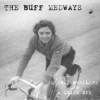 Local music for local people, and equally for those who’ve never heard of the Medway Towns alike, “Medway Wheelers” is a charming Punky grind about Billy Childish‘s mum cycling on a Hobbs Supreme in the Forties and Fifties. Any song with a line like “stopped in Llanelli for a cup of tea” and which concerns itself with minute rememberances of the simple things in North Kentish life might be expected to have a limited appeal, but wrapped up in the exuberent chug of The Buff Medways, and with the story told by Childish in his distinctively elegaic yet rough-egded manner and what this disc has here is a miniature classic. Is Childish the Alan Bennett of Garage Rock? Perhaps, but is that any kind of a bad thing? The CD version of the single has a video complete with Billy’s mum cycling around in Chatham and Whitstable as a bonus too.
Local music for local people, and equally for those who’ve never heard of the Medway Towns alike, “Medway Wheelers” is a charming Punky grind about Billy Childish‘s mum cycling on a Hobbs Supreme in the Forties and Fifties. Any song with a line like “stopped in Llanelli for a cup of tea” and which concerns itself with minute rememberances of the simple things in North Kentish life might be expected to have a limited appeal, but wrapped up in the exuberent chug of The Buff Medways, and with the story told by Childish in his distinctively elegaic yet rough-egded manner and what this disc has here is a miniature classic. Is Childish the Alan Bennett of Garage Rock? Perhaps, but is that any kind of a bad thing? The CD version of the single has a video complete with Billy’s mum cycling around in Chatham and Whitstable as a bonus too.
There is plenty to compare between The Buffs and The Who, and their cover of “A Quick One” is rattled through in raucous style, with Childish giving the “You Are Forgiven” chorus a suitably emotive polish, but there’s no mistaking the Garage feel to this track. Naturally, anyone with any sense will buy this on vinyl – it’s the ethos, innit?
-Richard Fontenoy-
The Buff Medways – Merry Christmas Fritz c/w Stille Nacht
Label: Damaged Goods Format: 7″
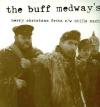 Billy Childish, the Medway Garage top honcho, is enjoying something of a vogue. Gaining favour on the other side of the pond, with such luminaries as The White Stripes, spreading the gospel of Chatham lo-fi Punk across the increasingly connected global village. In this age of crystal hyperreal production the only direction is back – to the roots, or so Billy believes.
Billy Childish, the Medway Garage top honcho, is enjoying something of a vogue. Gaining favour on the other side of the pond, with such luminaries as The White Stripes, spreading the gospel of Chatham lo-fi Punk across the increasingly connected global village. In this age of crystal hyperreal production the only direction is back – to the roots, or so Billy believes.
On the second track (please have patience, we’ll return to the beginning in due course) of The Buff Medways‘ Christmas single, we see The Buffs going all the way back to wax cylinders in a hauntingly primitive rendition of Stille Nacht. As if we are hearing a bedroom studio in the trenches of the 1914-18 war. For a Stuckist, Billy gets pretty conceptual, man.
This line of thought is continued (if one is playing the single in reverse order) on the A side with “Merry Christmas Fritz”. A fistful of The Buffs’ Punk energy – like some stripped-down play on Mot�head‘s Blues-driven thrash, but without the debilitating effects of LA culture and music industry lifestyle. The track of course refers to that well-known myth of German and British soldiers climbing out of the trenches on Christmas day to celebrate like old mates over a game of football, only to return to their lines the next to continue the mutual slaughter. War is one thing, Christmas another.
A skewed, anachronistic reinvention of the Christmas single as an age-old parable on life during wartime, where we are brought together in brotherhood just for one day before we return to our old bad selves again. Or as Tom Lehrer put it: “On Christmas day you cant get sore/Your fellow man you must adore/You can hate him all the more the other 364”.
A timely seasonal thought.
-Iotar-
The Bug – Seismic
Label: Morpheus Format: 12″
 The Bug is another identity of Kevin Martin of Techno Animal/Ice/God/EAR/The Sidewinder/etc., in this case a,lowing him to indulge in a little Ragga. Naturally, being that he’s not exactly unkown for his love of the fucked-up beat and the occasional use of excessive amounts of digital noise and bass, it’s good to report that the Seismic EP largely lives up to expectations, even if it’s a relatively quiet Martin effort.
The Bug is another identity of Kevin Martin of Techno Animal/Ice/God/EAR/The Sidewinder/etc., in this case a,lowing him to indulge in a little Ragga. Naturally, being that he’s not exactly unkown for his love of the fucked-up beat and the occasional use of excessive amounts of digital noise and bass, it’s good to report that the Seismic EP largely lives up to expectations, even if it’s a relatively quiet Martin effort.
“Politicians And Paedophiles” has vocal stylings courtesy of sometime world”s fastest MC Daddy Freddy – since he’s rapping so fast, it’s only occasionally that words like “psychology”, “terminology” and “all politicians live from murder” become fully discernable, but it’s that flubbery Dancehall beat which sets things off to an energetic digital rhtyhm and some creeping analogue warmth. The flipside has much more mellow vocals from Tikiman to accompany the click-n-Ragga groove in a hybrid of slow-burning harshness in the rhythm and a rising swarm of hissy atmospherics with nods to accapella Roots imprecations to love one another. This makes the track surprisingly minimal, and indicates interesting things ahead from The Bug’s future album project and Leaf label soundclash EP.
-Freq1C-
Bulbul – Velo
Label: Trost Format: 3″ CDS
 Bulbul‘s Velo is the thrid in a series of 26 environmental sound recordings by Manfred Engelmayr following a formula of sampling, looping and arranging single sound sources, though there’s no pitch-shifting or distorting of the sounds allowed. In this case, it’s a bicycle, and the gears, wheels, pump and other noises are constructed into five tracks of rhythmically-pumping grooves, chuckling from the energetic beats of “Roadflyer 18 Speed” to the more ambient pulsations of “Cycle Wolf”.
Bulbul‘s Velo is the thrid in a series of 26 environmental sound recordings by Manfred Engelmayr following a formula of sampling, looping and arranging single sound sources, though there’s no pitch-shifting or distorting of the sounds allowed. In this case, it’s a bicycle, and the gears, wheels, pump and other noises are constructed into five tracks of rhythmically-pumping grooves, chuckling from the energetic beats of “Roadflyer 18 Speed” to the more ambient pulsations of “Cycle Wolf”.
“Atlas Golden Super” has a clanking chug to its snip-snap monotone rhythm,with the counterpoint of gears and spokes providing a dynamic sensation of travel. “Clubman” rolls a more uneven path, trundling to the syncopations of the wheels – the sensation of velocipedal travel here is beguiling, and the interjections of bicycle-pump Swanee whistle trills brings out comic images of clowns on the Tour de France as the motion crashes into cacophony. The transition into “Checker Pig” with its infectiously Industrial feel is seamless, coasting on the propulsive possibilites of those same samples like Neubauten on a Funky day.
As an example of how to make the sounds of everyday percussion sources throb and groove goes, Velo does an generally excellent job. While not stunningly original, it’s a well realised contribution to Holger Czukay‘s principle of restriction as the mother of invention.
-Antron S. Meister-
Burn Witch Burn – Burn Witch Burn
Label: Razler Format: CD
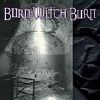 Boy, this is a great example of what happens when you get a bunch of extremely talented musicians together and then don’t bother writing decent music for them to follow. There’s no doubt that the music here is technically proficient – the violin and mandolin players on this are exceptional – yet the music barely lists itself past sounding like something Punk Rock leprechauns might listen to.
Boy, this is a great example of what happens when you get a bunch of extremely talented musicians together and then don’t bother writing decent music for them to follow. There’s no doubt that the music here is technically proficient – the violin and mandolin players on this are exceptional – yet the music barely lists itself past sounding like something Punk Rock leprechauns might listen to.
The Punk Rock mention is unavoidable, simply because this is Rodney Anonymous of Dead Milkmen fame’s newest project, and he doesn’t sound much different on the vocals here than he did in his former band. I’m getting from the inside sleeve here that this is supposed to be concept record about the witch-burning history of Philadelphia, but it’s not something that’s immediately obvious when you just sit back and listen to the record. I think there’s hope for this band, though-if they just relax a bit and stop trying to sound so clever and grownup.
-Holly Day-
Burning Witch – Crippled Lucifer
Label: Southern Lord Format: 2xCD
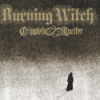 Before Sunn O))) there was Burning Witch, formed in the mid 90s by Stephen O’Malley and Greg Anderson, although none of their recordings actually features Anderson who had started Goatsnake by the time. Crippled Lucifer is a reissue of their 1996 Towers… and 1997 Rift.Canyon.Dreams releases – two discs of fabulous doom. This release of Crippled Lucifer is expanded from the 1998 Southern Lord edition (subtitled Seven Psalms For Our Lord Of Light), which only featured seven tracks. It now has ten and an enormously thick booklet filled with gorgeous artwork … but don’t expect a novel charting the brief history of Burning Witch.
Before Sunn O))) there was Burning Witch, formed in the mid 90s by Stephen O’Malley and Greg Anderson, although none of their recordings actually features Anderson who had started Goatsnake by the time. Crippled Lucifer is a reissue of their 1996 Towers… and 1997 Rift.Canyon.Dreams releases – two discs of fabulous doom. This release of Crippled Lucifer is expanded from the 1998 Southern Lord edition (subtitled Seven Psalms For Our Lord Of Light), which only featured seven tracks. It now has ten and an enormously thick booklet filled with gorgeous artwork … but don’t expect a novel charting the brief history of Burning Witch.
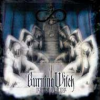 Listening to Burning Witch I can hear where Sunn0))) come from, but they aren’t the same band at all. The songs of both Crippled Lucifer EPs are guitar/bass/drum/vocal metal rather than the Sunn0))) wall of drone. Burning Witch’s came from the period when stoner/doom metal began to emerge and bands like Electric Wizard and The Melvins appeared. Burning Witch are much more doom-laden than Electric Wizard though; yes it is possible – easily. Towers… and Rift.Canyon.Dreams are superb and utterly, brutally metal: stoner grunge hijacked and held to ransom by black metal. Vocalist Edgy 59 wails and screams over the O’Malleys droning sludgy guitars. They took it one step further, heavier, and slower. It reminds me of Celtic Frost at their gloomiest and slowest, especially their recent release Monotheist or the early Frost incarnation Hellhammer.
Listening to Burning Witch I can hear where Sunn0))) come from, but they aren’t the same band at all. The songs of both Crippled Lucifer EPs are guitar/bass/drum/vocal metal rather than the Sunn0))) wall of drone. Burning Witch’s came from the period when stoner/doom metal began to emerge and bands like Electric Wizard and The Melvins appeared. Burning Witch are much more doom-laden than Electric Wizard though; yes it is possible – easily. Towers… and Rift.Canyon.Dreams are superb and utterly, brutally metal: stoner grunge hijacked and held to ransom by black metal. Vocalist Edgy 59 wails and screams over the O’Malleys droning sludgy guitars. They took it one step further, heavier, and slower. It reminds me of Celtic Frost at their gloomiest and slowest, especially their recent release Monotheist or the early Frost incarnation Hellhammer.
Crippled Lucifer is an absolute classic. It deserves all the volume you can give it.
-ap-
William S. Burroughs – Break Through In The Grey Room
Label: Sub Rosa Format: CD
 I don’t “get” William S. Burroughs.
I don’t “get” William S. Burroughs.
So I come to this recording with a certain amount of naivete. This is the first recording of his I’ve heard; I attended the memorial for him a few years ago at the San Francisco Art Institute, still didn’t “get” it. It was interesting – and I mean that in a good way – but my life didn’t change (at least not visibly) instantaneously like I hear all those hoary stories about first exposure to Uncle Bill. He’s got a great voice, though. It makes me smile. It’s a slightly disorienting experience to hear these old recordings, and I’m sure the disorientation was much more pronounced when first they were released. It’s more a time capsule than anything – audiobook in amber? It’s herky-jerky and thumpy in its edits, a charm and holdover from the tape era, which undoubtedly still spools somewhere special… There’s a “how-to” story about tape cut-up experiments (literary and auditory), the “third mind”, future events, and so forth.
And yet, how much of our lives are going to be collected and compiled and collated and kept for future days?
An insight into the world of junkies and heroin follows that one. The vicarious exposition. Master Musicians of Joujouka follow these revelations and follows up throughout and does enlightenment get boring after a while? An anticurse incantation emerges thereafter. More Jajouka, more cut-ups, some scratching, and Burroughs calls the law.
It’s a little like drifting in and out of someone else’s dreams, this record.
-David Cotner-
Buscemi – Mocha Supremo
Label: Downsall Plastics Format: CD
With the coffee-bar imagery on the sleeve – monochrome of course – Dirk Swartenbroekx‘s (What a name! Any language using a “k” next to an “x” is pretty damn cool – Ed.) collection of singles and new material is intent on bringing some cosmopolitain suave to the Belgian music scene. Cradle of Front 242, some awesome chocolates and the beer of choice for much of the UK, Belgium has actually acheived a few more cultural high points than the land whose capital is home to the European Commission might suggest. Dubbed Belgique Musique by Downsall Plastics, there’s a serious attempt to achieve a state of chic going on throughout Mocha Supremo.
This is the kind of chic which involves black dresses, café latté and hanging around in bars in Soho, Montmartre or Brussels(?), naturally with Buscemi as the soundtrack. Breakbeats? Yep, scratchy and laid back they are too, as found on the opening title track, but there’s rolling and skittering too for those who like their beats funked up and slightly distended (in a well-produced kind of way) from a variety of sub-genres, Acidic House to fuzzy Garage and Techno, with occasional sips of stimulating glitchy Ambience. Harshness is not on offer, but a certain laid-back charm is the order of the day (with cream and a sprinkling of cocoa powder, especially towards the end as the tracks become more linear and less interesting). Innoffensive but efficient basslines, dropped out beats and re-engineered returns to a compounded tempo with fragmented vocal samples making inchoate expressions of horizontal relaxation wind their way nicely throughout, making for a smooth, full-flavoured brew which goes down in an after-dinner kind of way.
Guaranteed to aid digestion, Mocha Supremo has sufficient caffeine content to aid wakefulness and enliven tired nerves. To get away from the beverage metaphors for a moment, tracks like “It Might As Well be Quiet…” and “Fingersnappin’ After Dark” also show Buscemi has got a handle on the Drum & Bass thing too, pumping up some two-stepping floor fillers which are on the pleasant end of the scale of such things, but also quite sharply dynamic, alert to the possibilities for taking things on a trip around the houses rather than just for a straightforward jog on the spot, without resorting to more Lounge Jazz motifs than is acceptable. It’s good to report that there’s at least someone who can make the mid-range of Electronica passable rather than dull as instant coffee-style granules.
-Freq1C-
